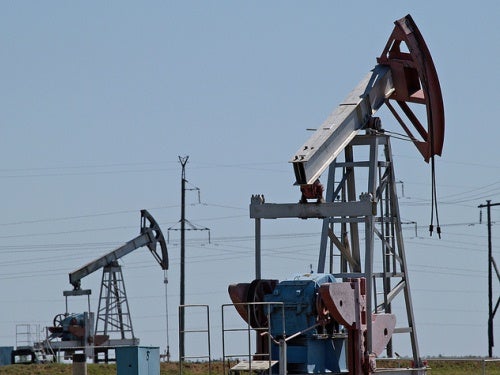 Do political institutions limit ‘rent-seeking’ (excessive profits free from competition) by political elites? Very much so, if they’re working properly, argue the four authors (Jørgen Juel Andersen, Niels Johannesen, David Dreyer Lassen, and Elena Paltseva) of ‘
Petro Rents, Political Institutions, and Hidden Wealth: Evidence from Offshore Bank Accounts.’ Their paper examines unique public data—on bank deposits held in some of the world’s best-known tax havens—to establish whether oil, in particular, really is the ‘resource curse’ it is made out to be by a range of political scientists and development professionals. (Spoiler alert—the answer is ‘yes.’)
Do political institutions limit ‘rent-seeking’ (excessive profits free from competition) by political elites? Very much so, if they’re working properly, argue the four authors (Jørgen Juel Andersen, Niels Johannesen, David Dreyer Lassen, and Elena Paltseva) of ‘
Petro Rents, Political Institutions, and Hidden Wealth: Evidence from Offshore Bank Accounts.’ Their paper examines unique public data—on bank deposits held in some of the world’s best-known tax havens—to establish whether oil, in particular, really is the ‘resource curse’ it is made out to be by a range of political scientists and development professionals. (Spoiler alert—the answer is ‘yes.’)
The authors identified a relationship between the flow of funds to offshore accounts and fluctuations in the price of oil. Offshore accounts bloat when the oil price is high, they say, while the recent, dramatic drop in oil prices has seen money flowing from safe havens back to where it came from. This phenomenon was especially conspicuous in the Middle East and North Africa region. Offshore wealth emanating from the region is proportionally so much larger than from anywhere else in the world, and ebbs and flows along with the price of oil. The authors determined that a 10% increase in petrol wealth was accompanied by 2.2% increase in offshore deposits.
State institutions play an important role in managing oil profits as 90% of oil monopolies are state-owned. The only other commodity that comes close to this kind of state ownership is copper at only 24%. Niels Johannesen came to the World Bank to present the report’s findings, and we had a chance to talk to him about what his research revealed about the unhealthy relationship between oil and weak institutions.
Niels Johannesen: What we see is that in time periods when the oil price goes up so that these oil producing countries have windfall gains—they have a lot of cash on their hands—then you’ll see that the money in offshore accounts owned by people in these countries, goes up, but only if the country has bad institutions. So only in the worst autocracies, basically, can you link this windfall gain to money popping up in offshore accounts.
Q. So you have identified a close correlation between a rise in oil prices and a rise in offshore accounts?
Johannesen: What is interesting is that we also find that when, in trying to establish a closer link between what is going on in the havens and what is going on domestically, we look at what happens around times of political uncertainty. So what happens when you have a coup in the country? And again, we can see that in a few quarters (three-month periods) before the coup, you will see money popping up in tax havens. So that you have people with domestic wealth that will start sending money off to havens in anticipation of the coup. Also, before elections; you ask yourself, ‘do autocracies have elections?’ Actually they do; often the ruler will try to rig the elections, so he won’t risk losing it. … Here again, we see this increase in accounts offshore just before the election takes place.
Q. So you are able to monitor these offshore accounts despite banking secrecy in some of these havens?
Johannesen: We have data from the BIS, the Bank for International Settlements, and they get this data from the havens themselves, but at a bilateral level. So what we see is, for example, the total amount of deposits in Switzerland owned by Saudis. We don’t see who the Saudis are and what their names are, we just see the total stock deposits owned by Saudis, and the total amount of deposits owned by Nigerians in Luxembourg or by Venezuelans in Panama, for example. … These are figures that have been used by the BIS for many years to construct capital account statistics—if you want to know what the flows of capital are across borders—but they’ve not really been used for this type of research before.
Q. What does this relationship reveal?
Johannesen: I think it speaks to the question of the ‘resource curse’—this idea that it can be bad for a country to have resources, and one mechanism by which it can be bad is that it will create ‘rents’ that are up for grabs and that will cause different political actors to fight over these rents, so that can give you instability, it can give you civil war, it can give you a bad political system. And I think no one has really tested this underlying premise that actually these natural resources are special in the way that they do allow ruling elites to extract them and divert them for personal use. We do the same kind of model using other types of rents. For example, the world market price of wheat, rice and wood also fluctuates and also creates economic rents, but these are not rents that are controlled by the state … and we don’t see any relation between these kinds of rents and money in offshore accounts. So it really points to natural resources as the source of political rents that can be undermining for the stability of the political system of a country.
Q. So presumably you have also looked at say North Sea oil?
Johannesen: So we compare a set of autocracies to other countries—so Norway, for example, is an oil-producing country—and the point is that we only see signs of this diversion of rents by politicians in the countries with the worst institutions. So if you fall below a certain threshold, where you’re really a bad autocracy, then this seems to be happening, but once you are above the threshold, it doesn’t seem to happen anymore. And Norway scoring very high on all these political institutional measures will certainly belong in a category where you don’t see this in the data.
Q . Does this link that you have made have some value beyond research?
Johannesen: I wouldn’t feel comfortable using these measures to say something about how much wealth has been stolen in aggregate because there are so many limitations of the data still that we don’t see the total portfolio of wealth, we only see deposits; you don’t see wealth owned through indirect holding structures, so you don’t see the whole picture. We’re just looking at a small part of the picture and what happens there correlates very well with oil prices. You also can say there’s a lot of emphasis on political institutions among economists working with political economy these days, and people stressing it as the single most important determinant of long-run outcomes, like whether we have growth or not really depends on how you have structured your political system.


Join the Conversation